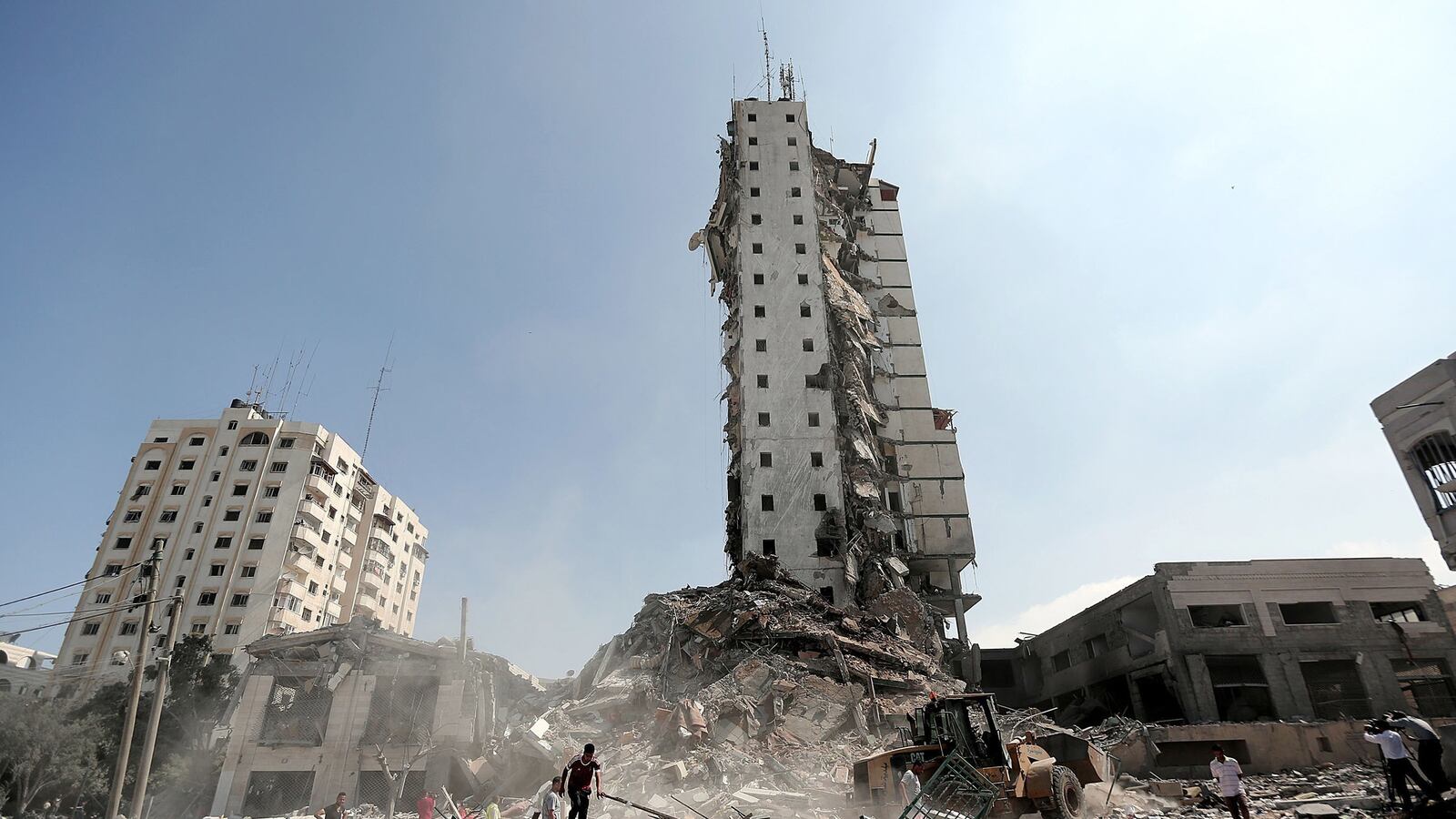TEL AVIV – If hell were a travel destination, Qusay Omran would be its unofficial tour guide. At 19, he’s lived through three wars, a cancer that nearly killed him, and such devastating poverty it would make the South Bronx look like an all-inclusive five-star vacation in Maui.
"I'm tired," he said at a hospital café in Tel Aviv, "tired of Gaza, tired of Israel, tired of life."
Last time I saw Omran, he could barely speak. He was brought to the Tel Aviv Sourasky Medical Center after doctors in Gaza discovered an aggressive tumor below his left knee. Since Gaza doesn't have enough hospitals or specialists, it sends many of its patients to be treated in Israel, even at the height of war.
About 27,300 critical care patients from Gaza were treated in Israel in 2013. According to the Paris Protocol, signed by Israel and the Palestinian Authority during the early days of the Oslo Accords, the PA is supposed to pay for any Palestinian patients treated by Israel. When Hamas took over Gaza in 2006, it continued sending patients up north. But since Hamas doesn’t recognize Israel, and vice versa, the PA pays Israel and then gets reimbursed by Hamas.
That has created a bizarre situation in which Gaza patients may be admitted to Israeli medical centers, under certain circumstances, even as Hamas fires rockets at the very cities where those patients are being treated and the number of dead and injured in Gaza as a result of Israeli bombardments mounts into the thousands.
There is now an uneasy, open-ended ceasefire, but during the war, about 300 emergency care patients from Gaza were received in Israel to be treated for cancer, kidney disease, heart disease, and other critical conditions.
I met Omran during 2012’s Operation Pillar of Defense. He was recovering from a particularly difficult round of chemotherapy. His immune system was so shot, I was asked to wear a surgical mask during the interview.
Omran, who was 17 at the time, was completely bald, weak, and as frail as a burnt match. He was in so much pain he could hardly utter two words at a time.
Doctors were eventually able to successfully remove his tumor, and after months of chemo and radiation, he was declared cancer-free and sent back home.
Almost two years later, he’s back for one of his final checkups, ironically during another war. But unlike last time, he looks nothing like the man I met. He's energetic, has a nice tan and a full head of reddish hair, and he’s no longer confined to a sterilized room. Every once in a while, he manages to produce a smile.
Omran’s Lazarus-like transformation is astounding. Despite having spent hours with him not that long ago, I wouldn’t have recognized him if I saw him walking down the street.
He’s filled out a bit, though he’s not what you’d call stocky. Like most kids his age, his face is glued to his cell phone. But when he finally does look up, it's his eyes that catch my attention. They are not the eyes of a teenager. Omran has that deep, mature stare that only comes with years of hardship and struggle.
"It's been rough," he finally admits after I ask him what life has been like in Gaza over the last several weeks. “My friend just lost his leg in one of the attacks,” he said in broken Hebrew. “He’s walking on crutches now.”
His dad, Jehad, won’t leave his side. Both are prohibited from leaving the premises for security reasons. They’ve been given a room in the hospital’s motel, in a special wing dedicated to Palestinian patients. There are currently ten other patients from Gaza in their wing. The hospital has a state-of-the-art shopping mall and some restaurants, although they can’t afford either.
It’s a warm night in Tel Aviv. And though Omran seems truly happy to see me, the last couple of years, and few weeks in particular, have taken their toll on him.
“We get electricity six hours a day. We don’t know when it will come back on but when it does, it usually stays on for the next six hours. That’s when I charge my cell phones and flashlights.”
The water situation is no better: two hours once every three days. “We fill every container, bucket and bathtub in the house and it lasts us until the next time.”
Jehad, a construction worker, lost his job eight years ago after Israel imposed a blockade on Gaza following Hamas’s rise to power. “There is no money. Everyone I know is struggling to survive,” said Jehad. Omran’s aunt, who lives in Saudi Arabia, sends them money every now and then, but it’s not much.
“It’s going to be even harder now with this war,” said Jehad.
Seven months after the Israeli Ministry of Defense imposed new restrictions on the sale of construction materials to the Gaza Strip, in an effort to further limit the building of underground Hamas tunnels into Israel, Gaza’s unemployment rate jumped to 40.8 percent, a full 30 percent spike since 2013, according to the Palestinian Central Bureau of Statistics. Most of Jehad and Qusay’s friends are jobless.
The little food they have comes from UNRWA, The United Nations Relief and Works Agency for Palestine Refugees which gives them flour, olive oil, rice, sugar and powdered milk once every two months.
But despite all the difficulties, the Omrans consider themselves among the lucky ones. “No one in our family died, alhamdulillah,” said Jehad, an Arabic saying which means "all praise and thanks to God.”
Omran managed to finish high school despite his bout with cancer and two wars in three years. He is one of the few in his class who got a diploma. Most of his friends dropped out.
Things got so bad a couple of months ago that Omran, along with several of his friends, tried to escape to bordering Egypt. They didn’t make it. Cops caught them and returned them home. “I was so angry,” said Jehad, who found about his son’s night hop when patrol officers delivered him to his door, frightened but unharmed. “I didn’t speak to him for a week.”
I ask Omran whether his views have changed since the beginning of the war, and whether he resents Israel. “No,” he answered. “Seventy percent of the people just want to live quietly. The anger is mostly at the governments,” he said.
Both he and his dad are grateful for the help they received. “Doctors here saved my son’s life. I’m forever in their debt.”
And then, Jehad, a man whose very name has become synonymous with “holy war,” says something that lights a tiny spark of hope. “There are good people here on both sides.”
These days, Omran is putting all his newfound energy to good use, studying English so he can apply to college abroad. “My dream is to study journalism in the US, like you.” When I ask him what would be his dream beat, he pauses for a second. “I want to be a health reporter,” he says.






